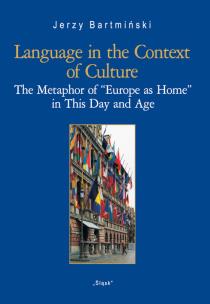- Regulamin
- Koszty dostawy
- Kontakt
- Dziś w ofercie 236 350 produktów
KSIĄŻKI
- Albumy
- Beletrystyka
- Biografie
- Dla dzieci i młodzieży
- Edukacja
- Ekonomia i biznes
- Ezoteryka
- Historia
- Informatyka
- Kalendarze
- Komiksy
- Kryminał i sensacja
- Kultura i sztuka
- Literatura faktu
- Literatura kobieca
- Literatura piękna
- Medycyna
- Nauka języków obcych
- Nauki humanistyczne
- Nauki przyrodnicze
- Nauki ścisłe
- Podręczniki
- Poradniki
- Prawo i administracja
- Przewodniki i podróże
- Psychologia
- Religia
- Sport
- Technika
- Zdrowie i uroda
ZABAWKI
- Artykuły dla niemowląt
- Bączki
- Bujaki i skoczki
- Ciągnij / pchaj
- Dla niemowlaka
- Grzechotki i gryzaki
- Karuzele i pozytywki
- Maty i centra zabaw
- Projektory i lampki
- Sortery i piramidki
- Zabawki
- Edukacyjne i kreatywne
- Figurki
- Klocki
- Lalki
- Pojazdy
- Pluszaki i maskotki
- Sport i rekreacja
- Zabawa w dom
- Zabawki drewniane
- Puzzle
- Do 200 elementów
- 201-500 elementów
- 501-1000 elementów
- Ponad 1000 elementów
- Puzzle 3D
ART. PAP
- Artykuły biurowe
- Artykuły piśmiennicze
- Bloczki i kartki samoprzylepne
- Dziurkacze
- Kalkulatory
- Nożyczki i nożyki
- Skoroszyty
- Teczki
- Wizytowniki
- Zszywacze
- Artykuły szkolne
- Akcesoria szkolne
- Modelowanie
- Notatniki i zeszyty
- Piórniki
- Plecaki i torby
- Pojemniki na śniadanie
- Pomoce naukowe
- Przybory matematyczne
- Przybory rysunkowe
- Upominki i gadżety
- Akcesoria do książek
- Artykuły balowe
- Breloki i zawieszki
- Drobiazgi, różności
- Kubki
- Oferta Świąteczna
- Papeteria, kartki i naklejki
- Skarpetki Many Mornings
- Upominki
GRY
MULTIMEDIA
- Audiobooki
- Beletrystyka
- Biografie i wspomnienia
- Dla dzieci i młodzieży
- Fantastyka
- Filozofia i religia
- Historia
- Literatura faktu i reportaż
- Poradniki
- Sensacja i kryminał
- Filmy DVD/BD
- Animowane
- Biograficzne
- Fantasy
- Horrory
- Komedie
- Romanse
- Science Fiction
- Sensacyjne / kino akcji
- Thrillery
- Muzyka CD
- Alternatywna
- Blues
- Dla dzieci
- Jazz
- Klasyczna
- Piosenka aktorska i poetycka
- Pop
- Rock
- Świąteczna i kolędy
- Akcesoria GSM
- Głośniki
- Kable i adaptery
- Klawiatury
- Myszy
- Słuchawki
PROMOCJE
ZDROWIE
LEGO

Language in the Context of Culture (Nr 27)
Autor: Bartmiński Jerzy
Wydawca:
Śląsk
ISBN:
9788371649905
EAN:
9788371649905
oprawa:
oprawa: broszurowa
podtytuł:
The Metaphor of
format:
14,8x21 cm
język:
angielski
liczba stron:
70
rok wydania:
2018
(0) Sprawdź recenzje
Opis produktu
Zasady bezpieczeństwa
This study is based on the assumption that language and culture are most closely connected at axiological level. Attention is paid to value terms regarded as cultural concepts, with their explications in the form of multi-aspectual cognitive definitions, as proposed in cognitive ethnolinguistics. Such extended definitions or “narratives” are “texts of culture” in the sense of the Moscow-Tartu School: they contain records of socially entrenched knowledge and beliefs, as well as references to norms and values professed by the speaking subject. This approach is illustrated with the metaphor of “Europe as home”. The analysis of several languages with regard to the pair of cultural concepts it includes leads to the conclusion that the mappings from HOME (source domain) to EUROPE (target domain) are in fact selective and hardly draw on an image of actual or real home: they are typically based on the image of an “ideal” home, with its atmosphere of family life, security, and feeling-at-home. To a limited extent, the physical aspect is activated in the process of metaphorisation, in connection with “building the European home”. However, in contemporary xenophobic discourse, the semantics of HOME triggers off the negative concept of “separation from the outside”: Europahaus, interpreted as Festung Europa ‘Fortress Europe’ with its implications of gates, walls, ramparts etc., becomes an unbreachable barrier against the “invasion of strangers”.
CENA:
8,48
zł
Cena detaliczna:
10,00 zł
15%
rabatu
Najniższa cena z ostatnich 30 dni: 8,50 zł
Produkt niedostępny
Uwaga!!!
Ten produkt jest zapowiedzią. Realizacja Twojego zamówienia ulegnie przez to wydłużeniu do czasu premiery tej pozycji. Czy chcesz dodać ten produkt do koszyka?


Wybierz wariant produktu
